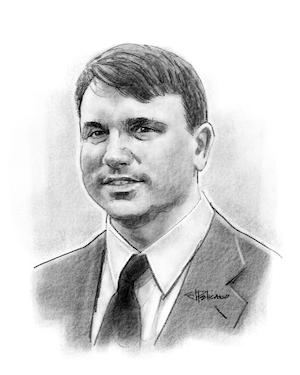- The intended purpose of allegory
- Metaphysical reflections on hell and purgatory
- The nature of freedom, agency, and the will
- The diabolical; the urgency of spiritual warfare
- Virtue and politics
LECTURES
- C.S. Lewis and the Catholic Church
Although C.S. Lewis was not Catholic, he was a significant figure in the Catholic literary revival. So what is it that Lewis actually believed? Join Professor Joseph Pearce in considering what Lewis’ role was in this revival of the Catholic Church alongside his Catholic contemporaries, such as J.R.R. Tolkein. - The Pilgrim’s Regress
The Pilgrim’s Regress was Lewis’ first literary work and perhaps one of his most underrated. Consider what this work can teach us about Lewis’ intellectual history, his path to conversion, and what Christianity meant to him throughout the writing of this work. - The Great Divorce
What did Lewis, as a non-Catholic, believe about the nature of hell? Is it possible he even believed in purgatory? The Great Divorce is filled with spiritual reflections on the nature of agency and free will and how the afterlife must be considered in this life. - The Space Trilogy Part One: Out of the Silent Planet
Join Professor Joseph Pearce in this philosophical and metaphysical reflection on the nature of heaven and earth as presented through Lewis’ first science-fiction novel, Out of the Silent Planet. Discover how Lewis’ characters in the novel are infused with theological depth and point us to a higher reflection of the nature of our human purpose. - The Space Trilogy Part Two: Perelandra
What is a demonic understanding of freedom? Pearce describes Perelandra as a kind of dialectic exchange between a demonic understanding of freedom and the will, and a divine understanding of freedom and the will. - The Space Trilogy Part Three: That Hideous Strength
The attacks on humanity’s education have dehumanized education and humanity at its core. These things were relevant in Lewis’ time and perhaps are even more relevant today. That Hideous Strength offers frighteningly necessary theological reflections that every Christian should consider today. - The Chronicles of Narnia Part One
Consider one recurring theme in Lewis’ works: scientism, which, as Professor Pearce explains, has a direct connection to the diabolical in Lewis’ allegorical works. It is scientism that presents itself as the great lie for Lewis. We begin our journey of considering such reflections in light of The Chronicles of Narnia. - The Chronicles of Narnia Part Two
The Chronicles of Narnia is often considered a Christian allegory in conservative circles. Is this how Lewis intended it? Follow Professor Pearce as he breaks down and contemplates the themes of virtue – namely humility and pride – as well as the political implications infused throughout this timeless series of adventures.
LECTURE SAMPLE
MEET YOUR PROFESSOR

A native of England, Joseph Pearce is the internationally acclaimed author of many books, which include bestsellers such as:
- The Quest for Shakespeare
- Tolkien: Man and Myth
- The Unmasking of Oscar Wilde
- C. S. Lewis and The Catholic Church
- Literary Converts
- Wisdom and Innocence: A Life of G.K. Chesterton
- Solzhenitsyn: A Soul in Exile
- Old Thunder: A Life of Hilaire Belloc
His books have been published and translated into Spanish, Portuguese, French, Dutch, Italian, Korean, Mandarin, Croatian and Polish.
He has hosted two 13-part television series about Shakespeare on EWTN, and has also written and presented documentaries on EWTN on the Catholicism of The Lord of the Rings and The Hobbit. His verse drama, Death Comes for the War Poets, was performed off-Broadway to critical acclaim. He has participated and lectured at a wide variety of international and literary events at major colleges and universities in the U.S., Canada, Britain, Europe, Africa and South America.
Joseph is Director of Book Publishing at the Augustine Institute, and editor of the St. Austin Review, series editor of the Ignatius Critical Editions, senior instructor with Homeschool Connections, senior contributor at the Imaginative Conservative and host of the TAN podcast series, The Authority. He previously served as the first Executive Director of TAN Courses, and has since taught Literature courses on Tolkien, Shakespeare, Chesterton and Lewis.
- Author:
- Joseph Pearce
- Imprint:
- TAN Courses
- Subject:
- Literature
- Wistia Hash:
- vjwu7e9qbx
- Wistia Name:
- TAN Courses: The Literary Imagination of C.S. Lewis
- Wistia Url:
- https://tanbooks.com/tan-courses-the-literary-imagination-of-c-s-lewis/














